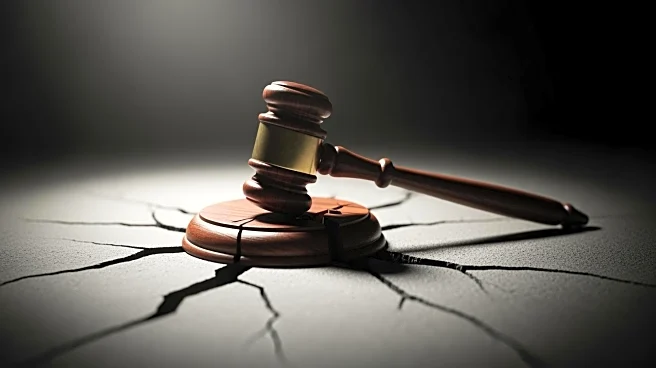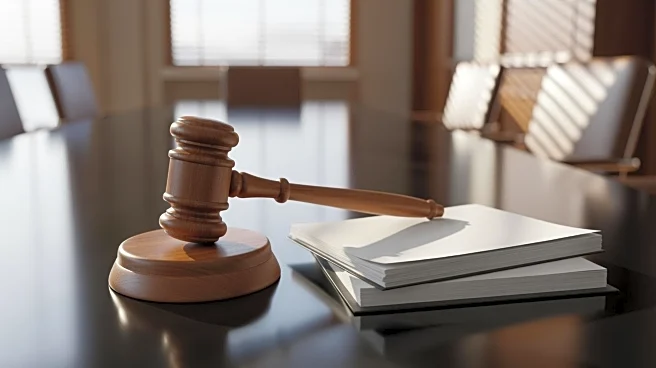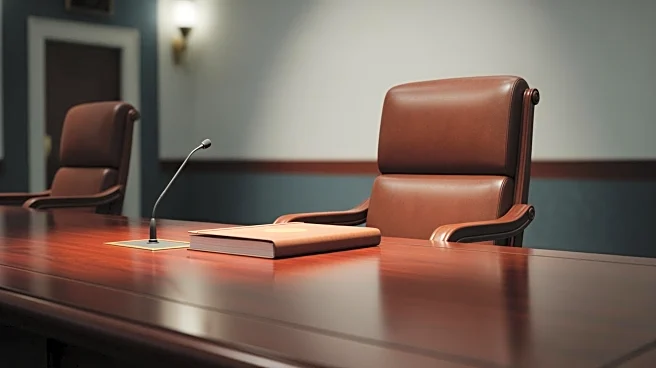What's Happening?
Erez Reuveni, a former Department of Justice lawyer, has come forward as a whistleblower, alleging abuses of power within the DOJ. Reuveni claims he was fired after refusing to sign a brief in the mistaken
deportation case of Kilmar Abrego Garcia, which he believed contained false information. Reuveni, who had previously defended President Trump's immigration policies, asserts that the DOJ disregarded due process and court orders, particularly in the mass deportation of Venezuelans under the Alien Enemies Act. He describes a meeting where DOJ officials allegedly expressed intent to ignore court orders, leading to the deportation of individuals without judicial review. Reuveni's whistleblower complaint has brought attention to concerns about the DOJ's adherence to legal standards and the rule of law.
Why It's Important?
The allegations made by Reuveni raise serious concerns about the integrity and accountability of the Department of Justice, particularly in its handling of immigration cases. If true, these claims could undermine public trust in the DOJ and highlight systemic issues within the department regarding the enforcement of immigration laws. The case also emphasizes the importance of due process and the potential consequences of bypassing legal procedures, which could affect the rights of individuals facing deportation. The situation may prompt calls for increased oversight and reforms within the DOJ to ensure compliance with legal and ethical standards.
What's Next?
The whistleblower complaint filed by Reuveni may lead to investigations into the DOJ's practices and potentially result in legal or legislative actions to address the alleged abuses. There could be increased scrutiny of the DOJ's handling of immigration cases, with potential implications for future policy decisions. The case may also influence public discourse on immigration and the role of the DOJ, potentially affecting political dynamics and upcoming elections.
Beyond the Headlines
The situation highlights broader ethical and legal challenges within the DOJ, raising questions about the balance between national security and individual rights. It also underscores the importance of whistleblower protections and the role of individuals in holding government institutions accountable. The case may contribute to ongoing debates about immigration policy and the treatment of migrants in the U.S.









